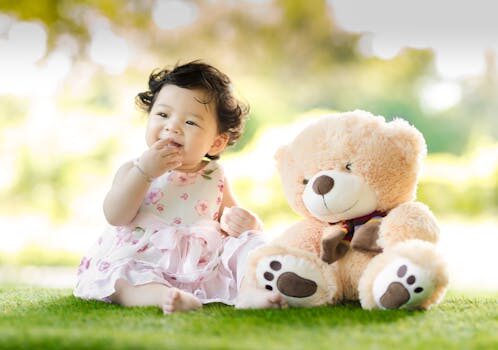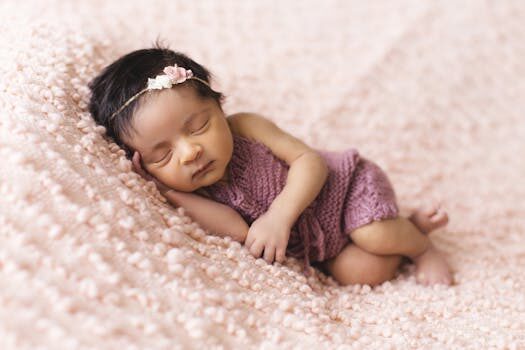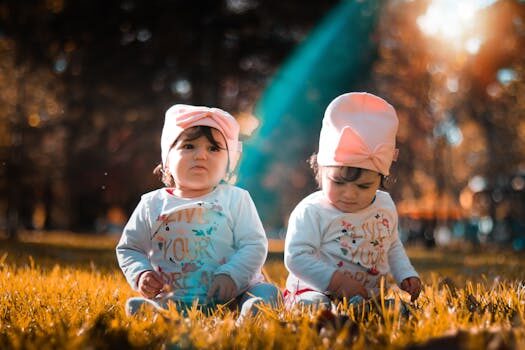When do babies laugh?

Understanding the milestones of a baby's laughter is fundamental for parents and caregivers. Laughter is not just a joyful sound; it signifies important developmental stages in a child's growth.
Knowing when do babies laugh can help you engage better with your little one and ensure they are developing social skills appropriately.
When do babies start laughing?
Most babies typically start laughing around 3 to 4 months of age. At this stage, they begin to engage more with the world around them, and laughter becomes a natural expression of their joy.
Initially, laughter may be sporadic and often triggered by familiar faces or sounds. As they grow, the frequency of laughter increases, often coinciding with developmental milestones related to social interactions.
By around six months, most babies laugh regularly. If your baby hasn’t laughed by this age, it may be worthwhile to monitor other developmental indicators.
What makes babies laugh?
There are several factors that can trigger laughter in babies. Typically, babies laugh in response to playful interactions and surprises. Funny faces, silly sounds, and gentle tickling are common triggers.
- Tickling - Light tickling can provoke laughter, especially around sensitive areas.
- Peekaboo - This classic game often leads to giggles as babies enjoy the element of surprise.
- Funny voices - Altering the tone of your voice can elicit laughter from your baby.
Laughter also emerges as babies start to form connections and engage socially. As they recognize familiar faces and voices, it enhances their emotional responses.

How can I make my baby laugh?
Creating an environment where laughter thrives involves playful interactions. Here are some effective strategies:
- Use humor: Engage in playful antics like funny dances, funny sounds, or silly faces to encourage laughter.
- Incorporate toys: Use toys that make noise or have unique features that intrigue your baby.
- Share laughter: Let your baby see you laugh and smile; this often prompts them to mimic your expressions.
Remember, every baby is unique and may respond differently to various stimuli. Finding what makes your baby laugh is part of the joyful journey of parenthood.
What if my baby isn’t laughing yet?
It's common for parents to worry if their baby hasn't laughed by six months. While most babies do laugh by this age, some may take longer due to individual differences in development.
If your baby isn't laughing yet, pay attention to other developmental milestones, such as smiling and cooing. These are also important parts of their emotional and social development.
However, if you have concerns about your baby's laughter or other milestones, consider consulting a pediatrician. Early intervention can be helpful if any developmental issues are present.
When do babies laugh and giggle?
By the age of 6 months, most babies begin to laugh and giggle regularly. This is often accompanied by other social behaviors, such as responding to others during interactions.
As your baby approaches this age, you may also notice them giggling in response to playful situations or silly antics. This laughter is a crucial part of their development and helps foster social bonds.

Encouraging these giggles through play can enrich your baby's emotional health and communication skills.
Why do babies laugh in their sleep?
It may come as a surprise, but many parents report hearing their babies laugh in their sleep. This phenomenon is often linked to the dreaming stage of sleep, where babies can process emotions and experiences from their day.
During this stage, babies might be recalling a fun interaction or simply enjoying a whimsical dream. It's a delightful reminder of their joyful experiences and developmental progress.
While it’s completely normal, if you're concerned about your baby's sleep behavior, consulting with a pediatrician can provide peace of mind.
How and why to encourage your baby’s laughter?
Encouraging laughter in babies is vital for their social and emotional development. Here are some methods to help stimulate laughter:
- Be playful: Incorporate games that promote laughter, like peekaboo or tickling.
- Foster routine: Create regular, playful routines that your baby can anticipate and find joy in.
- Social interactions: Encourage playdates with other babies to promote laughter through social interactions.
Providing a supportive and engaging environment will not only help in prompting laughter but will also build a strong bond between you and your baby.
Related Questions About Baby Laughter
Can babies laugh at 2 months?
While it is quite early for babies to laugh at 2 months, they may show smiles or cooing sounds. True laughter typically begins around 3 to 4 months, as they develop more social engagement.

How can I encourage my baby to laugh?
Engage your baby with playful interactions such as funny faces, silly sounds, and gentle tickling. These activities promote joy and can elicit laughter.
What age do babies start cooing and laughing?
Babies typically start cooing at about 2 months, while laughter usually emerges around 3 to 4 months. Recognizing these milestones can help gauge your baby's development.
When should a baby start smiling and laughing?
Most babies start smiling around 6 to 8 weeks and typically begin laughing between 3 to 4 months. These milestones are essential for emotional and social development.
For a better understanding of baby laughter and development, check out this informative video: